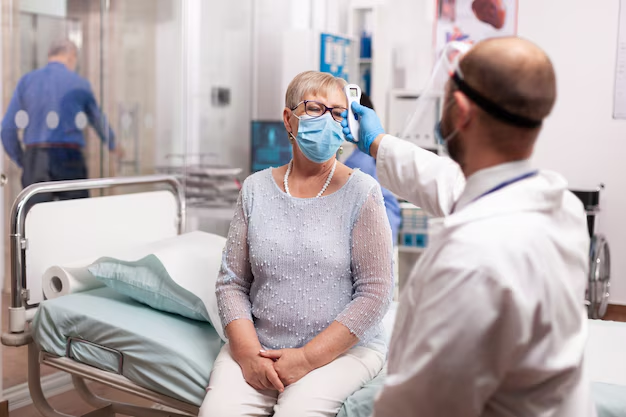Understanding Tuberculosis: Can It Go Away?
Tuberculosis, more commonly known as TB, is a condition that has affected millions worldwide and continues to be a significant public health challenge. For anyone diagnosed with or concerned about TB, the question arises: Does Tuberculosis Go Away? Let's explore the journey of TB, its impact, and treatments that address this critical health issue.
What Is Tuberculosis?
Tuberculosis is an infectious disease caused by the bacteria Mycobacterium tuberculosis. It primarily affects the lungs but can also impact other parts of the body, including the spine, kidneys, and brain. TB is known for being highly contagious and can spread through the air when an infected person coughs or sneezes.
Forms of TB: Latent vs. Active
Latent TB: This form means the TB bacteria are present in the body but inactive. Individuals with latent TB exhibit no symptoms and are not contagious. However, this form can shift to active TB if not managed properly, especially in individuals with weakened immune systems.
Active TB: Here, the bacteria cause symptoms like a persistent cough, weight loss, fever, and night sweats. Active TB is contagious and requires immediate medical attention to prevent spreading the disease to others.
Does TB Ever Truly Go Away?
The good news is that TB can indeed be effectively treated, and in many cases, it does go away with proper care. However, understanding this process is crucial to addressing TB in both its latent and active forms.
Treatment Options for TB
Antibiotic Regimen: The cornerstone of TB treatment involves a course of antibiotics. The typical regimen lasts six to nine months and includes drugs like isoniazid, rifampicin, ethambutol, and pyrazinamide. It's vital to complete the entire course as prescribed to ensure all bacteria are eradicated.
Directly Observed Therapy (DOT): In this treatment approach, healthcare providers supervise patients taking their medication to ensure adherence. This method has proven highly effective in reducing TB cases.
Multidrug-Resistant TB (MDR-TB): This form of TB is resistant to standard drugs and necessitates a more prolonged and potent antibiotic course, often involving second-line medications.
Success Factors for Treatment
Several factors influence the likelihood of a full recovery from TB:
- Adherence to Treatment: Taking medications consistently and completing the entire course is critical to eliminate the bacteria.
- Healthy Lifestyle: A balanced diet and avoiding stress can support recovery.
- Timely Diagnosis: Early detection significantly enhances treatment success rates.
Potential Barriers to Recovery
While TB is treatable, several obstacles can hinder recovery:
- Access to Healthcare: In certain regions, limited access to health services can impede timely treatment.
- Stigma: Social stigma associated with TB can prevent individuals from seeking necessary care.
- Drug Resistance: Non-adherence or incomplete treatment courses can lead to resistant strains, complicating recovery.
Preventing Tuberculosis
Prevention remains a critical component in the fight against TB. Consider these strategies:
Vaccination
The Bacillus Calmette–Guérin (BCG) vaccine is developed to protect against TB. This vaccine is mostly administered in countries with high TB prevalence, particularly to newborns and young children.
Public Health Initiatives
- Screening and Testing: Regular screening in high-risk populations such as healthcare workers and individuals with compromised immunity helps in early detection.
- Awareness Campaigns: Educating communities about TB symptoms and transmission can reduce stigma and promote early diagnosis.
The Role of Lifestyle in Managing TB
Managing TB involves more than just medication; lifestyle changes can significantly impact recovery and prevention:
Nutrition
Proper nutrition plays a vital role in strengthening the immune system. A diet rich in fruits, vegetables, whole grains, and lean proteins can help bolster the body's defenses.
Avoiding Risk Factors
- Smoking: Smoking can damage the lungs further in people with TB. Avoidance is crucial to prevent complications.
- Alcohol Consumption: Excessive drinking can interfere with the liver's ability to process TB medications, prolonging recovery.
The Evolution of TB Treatment: What's Next?
Medical advancements continue to shape the management of TB. Here's a glimpse into the future directions:
New Drug Developments
- Shorter Treatment Durations: Research is underway to reduce the length of TB treatment without compromising efficacy.
- Targeted Therapies: Future drugs may offer more targeted approaches to tackle drug-resistant strains.
Diagnostic Tools
- Rapid Testing: New and quicker diagnostic tests are in development to detect TB more efficiently, allowing for prompt treatment initiation.
Global Initiatives
International organizations are collaborating to strengthen TB control strategies worldwide, focusing on research, funding, and policy support to reduce TB incidence.
Empowering Patients and Communities
At the heart of conquering TB lies the empowerment of individuals to take charge of their health. Support networks, whether through community groups or healthcare services, play a pivotal role in encouraging adherence and understanding the disease.
Support Systems
- Patient Education: Providing comprehensive information about TB and its treatment empowers patients to make informed decisions.
- Community Health Workers: They bridge the gap between healthcare providers and the community, ensuring ongoing support and monitoring.
The Importance of Follow-through
Completing the treatment plan not only eradicates the disease but also prevents the transmission of TB to others, contributing to broader public health goals.
TB, while a serious and complex disease, is not invincible. With the correct treatment and lifestyle adjustments, it is entirely feasible for TB to go away. Global efforts continue to make breakthroughs in tackling TB more effectively, ensuring a healthier future for generations to come.
Quick Takeaways: 📝
- TB Can Be Treated: With the right antibiotics and adherence to the treatment plan, TB is curable.
- Be Vigilant: Early detection and prevention are crucial. Know the symptoms and seek medical advice if needed.
- Live a Healthy Lifestyle: Good nutrition and avoiding smoking and excessive alcohol support recovery.
- Stay Informed and Supported: Understand TB and its treatment—knowledge is power.
Empower yourself with knowledge and proactive measures—TB can go away with diligence and informed action. 🌍🔬💡

